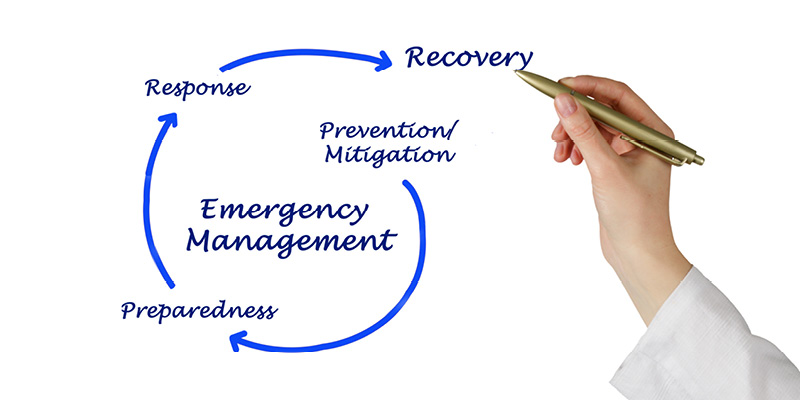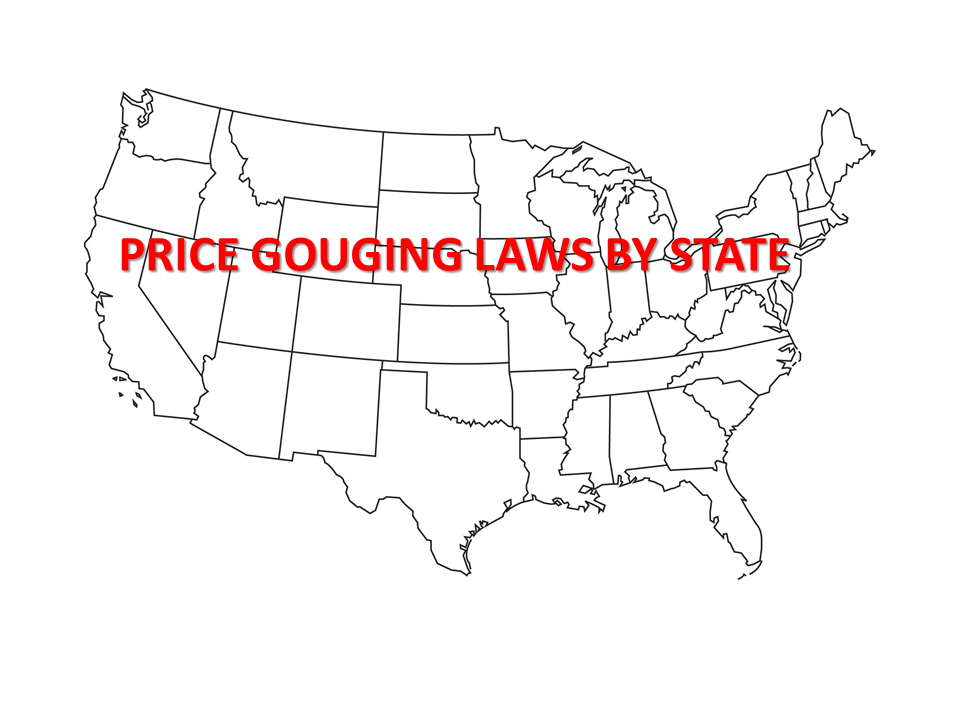Disaster Readiness


Disaster Planning, Preparedness & Recovery for a Self Storage Business

Florida Self Storage Association - InPrint Magazine
The most recent edition of InPrint contains relevant legal, insurance and other hurricane related articles.
SSA Magazine Resources
October 2016
Blown Away – Storage facilities need the right insurance when wind and hail strike.
October 2015
Do you have a plan?
You can’t stop disasters from hitting your facility, but you can prepare for them.
March 2013
Under Water
Hurricane Sandy’s one-two punch won’t soon be forgotten.
October 2012
Dodging the Derecho
Self storage facilities largely avoided the worst during the summer’s massive windstorm.
July 2011
Dealing with Catastrophes
October 2011
It’s Not the Heat (or the Cold), It’s the Humidity!
Extreme weather should sound the alert for proper climate control.
October 2010
Emergency Preparedness
Between oil spills and hurricanes, Gulf Coast self storage businesses need to be ready.
January 2010
Winter Brings Maintenance Challenges
When the chill sets in, be sure to protect vulnerable elements of your facility.
October 2009
Self Storage Legal Network Question: Tornadoes
October 2009
Apocalypse Now?
When disaster strikes, it’s too late to prepare.
October 2009
Are you ready to respond to an emergency?
Natural Disasters Continue to Impact Self Storage Operators
By Scott Zucker
Once again, I find myself writing about natural disasters that have impacted our country. After years of dealing with the aftermath of Hurricane Katrina and Super Storm Sandy, the Gulf Coast has now been ravaged by Hurricane Harvey and the East Coast is recovering from Hurricane Irma. These storms once again remind us that self storage facilities are not immune to the effects of disasters. No matter how cautious a facility owner is, there always exists the possibility of a natural occurrence resulting in damage to a facility and its tenants' contents. In addition to the emotional and financial impact a disaster can have on a facility owner, that operator, as a landlord, must also cope with the anxiety and demands of its tenants who are also dealing with the aftermath of their property loss.
Handling Tenants
When a situation occurs at your facility that results in damage to your tenants' property, it is crucial that the tenants be notified. Notice should be made both by phone and by written notice to each tenant's last known address. The notice should explain whether the tenant can recover its property from the facility and, if so, when. Access to a tenant's goods can usually be given unless the damage is such that it would be dangerous for the tenant to enter the facility property. The written notice should also recommend that the tenant notify his or her insurance company.
What about your tenants' claims? If a disaster occurs that could not be controlled by the facility, most leases and rental agreements will protect the facility owner from tenant claims arising from the loss of their property. Self storage leases typically contain specific language stating that the facility will not be held responsible for the loss of or damage to its tenants' stored property from such natural occurrences or Acts of God. Self storage leases generally provide that the tenant's property is to be stored at their own risk and that the facility does not take care, custody or control of the property stored.
Unfortunately, when a tenant's property is lost or damaged, regardless of the cause, and even if the proper lease protections are in place, a tenant will sometimes sue the facility to recover for the loss. This is where customer goods' legal liability insurance coverage comes in. This specialized self storage insurance protects a facility from tenant claims arising from loss or damage to their property. This insurance will cover the cost to defend a facility against any lawsuits that arise from damage or loss claims and will cover the court costs and payments to the tenant if such payments are warranted or awarded by the court. Self storage operators should be aware that standardized comprehensive and business liability policies will likely not cover tenant loss and damage claims and therefore this type of unique specialized coverage is needed for this type of protection.
Have a Plan
After a loss occurs, it is incumbent upon the facility owner to protect the property (and the contents) from further damage. Therefore, efforts should be made to cover or board up areas that remain open to the elements and rope off damaged areas to protect tenants' property, hiring temporary security if necessary. Also, when a loss occurs, it is important to fill out an incident report and take photographs or videotape footage that would document both the loss and your efforts to mitigate further damages. Finally, contact your insurance company. Many insurance companies will not be obligated to cover your claims if they are not given reasonable notice of the occurrence and have a chance to investigate it. Contact your claims agent by phone and then follow up in writing. Notwithstanding all good planning and good intentions, disasters can wreak havoc for self storage operators. By recognizing a straightforward approach of "safety first", an operator can most likely avoid greater problems associated with tenant and employee personal injuries. Once the dust has settled from the disaster and safety has been verified, the process can move ahead toward the recovery of the tenants' property and repairs to the facility. As long as the proper insurance is in place, the financial impact of the disaster can hopefully be controlled.
Once the property is safe for access, it is recommended that storage operators obtain dumpsters for their customers who have suffered a loss (or at least designate a specific area where property can be dumped and later removed), so that damaged property can quickly be removed from the facility buildings (due to the certain risk of mold and mildew). Effort should be made to contact tenants who have not inspected their property, requesting that they return to the facility as quickly as possible. After two or more weeks, the risk of mold and mildew on affected property increases, and it may be necessary for the facility owner to enter the spaces and move the property themselves (possibly to a portable unit outside of the facility itself) or maybe to a dumpster if the property is unsalvageable. Before any action is taken to dispose of damaged property, an operator should again contact its tenant and work in concert with its insurance company regarding the need to clear the storage building of damaged property.
Katrina
Lessons can be learned from the Hurricane Katrina disaster. A lawsuit, decided in the United States District Court for the Southern District of Mississippi,Griffith v. U-Store-It Miniwarehouse (2007) is the first case relating to claims against a self storage operator arising from the Hurricane. In this case, the tenants complained when the facility prevented access to the facility after the Hurricane. Due to the damage to the property, the operator had posted "No Trespassing" signs. The tenant filed suit alleging that the operator, by failing to allow them access, had damaged their property which could otherwise have been salvaged. They claimed that their property loss exceeded $120,000.00.
In response to the lawsuit, the facility operator contended that, pursuant to the lease, it had the right to limit customers' access to the property under certain conditions. In this case, the operator would not let any of its tenants enter the property until they determined that the property was safe. Although the tenant contended that the operator was both a bailee of the property and had acted negligently by not allowing access, the court concluded that the language of the lease barred both claims. Ultimately, the court found that a self storage operator should neither be considered a bailee nor be found negligent if it restricts access to its customers over facility safety concerns.
Sandy
Lawsuits have been pending for years between Christie's, the art storage company and insurance companies that were forced to pay their customers millions of dollars in losses to their art as a result of the storm's flooding. Although the Christie's contracts exclaimed liability for such damage, the insurance companies have been able to maintain their lawsuits based on the factual issues as to whether Christie's promised to store the art on higher floors and that it was aware of the impending storm but did nothing to stop the resulting damage to the art.
Unfortunately, the Christie's line of cases may keep open the legal question for certain storage operators as to whether they can avoid liability arising from the Houston and Florida flooding. Certainly, non-bailment contracts should stop the risk of liability for the resulting loss and damage to property, but the courts seem willing to impose certain liabilities on storage operator who may have made promises outside their contracts or who failed to expressly warn their customers about the risk of loss.
Scott Zucker specializes in business and commercial litigation with an emphasis on dispute resolution in the areas of construction, real estate, employment, landlord-tenant and franchise law. Scott represents companies in matters relating to contract claims, loss and damage claims, delay and productivity claims, premises liability actions and tenant dispossessory. Scott also reviews and drafts construction contracts, property leases and employment agreements, trains property managers in office, retail, multi-family, industrial and self storage and evaluates property management operations in those areas. Scott also has extensive experience in creditors’ rights and bankruptcy proceedings as well as in commercial collections. He represents companies throughout the country in resolving their commercial disputes in state or federal courts and through Alternate Dispute Resolution. Scott obtained his undergraduate degree from Washington University in St. Louis in 1984 and his law degree from George Washington University in Washington, D.C in 1987.
For almost thirty years Scott Zucker has acted as outside legal counsel to a variety of privately held and publicly traded businesses involved in multiple industries. Scott is primarily a litigator, so he understands the pros and cons of pursuing, as well as defending, claims between individuals and companies. Scott is currently the Deputy General Counsel for the Self Storage Association and a Partner in the Self Storage Legal Network (SSLN). His legal services have ranged from handling general corporate matters and providing risk management advice to companies as well as the representation of clients in the litigation or arbitration of contract disputes, insurance coverage claims, construction defects, premises liability, employment termination actions and environmental matters. Scott’s goal is to apply his experience and knowledge to help contending parties reach resolutions of their disputes as efficiently and economically as possible.